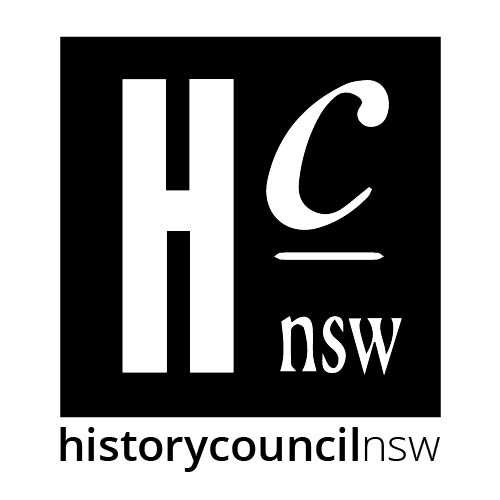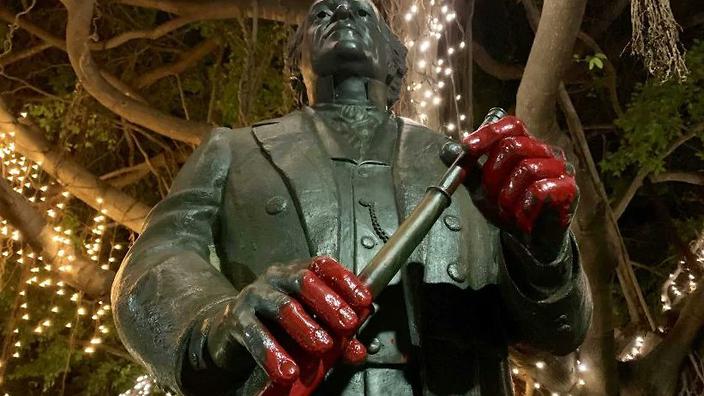Image Credit above | 22 June 2020, NITV: ‘Statue of Slave trader painted with bloodied hands in Townsville: Vandalism of Robert Towns Statue.
Speakers:
Dr Jess Moody (University of Bristol, Lecturer in Public History)
Nathan Sentance, (Wiradjuri man & Project Officer, Cultural Programs, Australian Museum)
Claire Baxter (Masters in Conflict in Archaeology and Heritage, University of Glasgow)
Description:
British historian of the slave trade, Christer Petley, has argued for the removal of certain statues, such as that of Slave Trader, Edward Colston, which after 20 years of peaceful requests for removal, was finally yanked from his plinth and dragged into the sea during a Black Lives Matter protest in Bristol. As Petley notes, ‘that statue was made in the 19th century and says more about what they valued then, than what matters to us now … We need to ask — do these serve the public good and do they constitute ‘good history’? In this session, we consider the role of historians, communities and the public when it comes to protests and monuments. By reflecting upon what constitutes ‘good history’, we explore how historians can collaborate with others to create ‘good history’ together.

Nathan Sentance
Project Officer, Cultural Programs @Australian Museum

Jess Moody
Lecturer in Public History, @University of Bristol

Claire Baxter

Our Chair: Dr Kiera Lindsey
UTS and Executive Councillor, HCNSW
Dr Kiera Lindsey is an award-winning historian based at University of Technology Sydney (UTS) where she is a Senior Research Fellow conducting an Australian Research Council Discovery Early Career Research Award (DECRA) on speculative biography and historical craft. Kiera has published national and international academic book chapters and journal articles on nineteenth-century history, historical craft and biography.
In 2016 she published her first speculative biography and cross-over trade book, The Convict’s Daughter, with Allen & Unwin’. Her second biography on the artist Adelaide Ironside will be published in 2021 as well a co-edited collection with Donna Lee Brien on Speculative Biography (Routledge).

